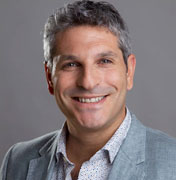The Man Who Knew Infinity
 The story of Indian maths genius Srinivasa Ramanujan, who came from a humble home in Madras to study at Cambridge with don GH Hardy, is one of the more obscure tales to make it to the British big screen. In the hands of writer-director Matthew Brown (working from a 1991 book by Robert Kanigel), it becomes a prestige production befitting the beautiful mind of the Indian prodigy, though it never quite adds up to anything more than the sum of its parts.
The story of Indian maths genius Srinivasa Ramanujan, who came from a humble home in Madras to study at Cambridge with don GH Hardy, is one of the more obscure tales to make it to the British big screen. In the hands of writer-director Matthew Brown (working from a 1991 book by Robert Kanigel), it becomes a prestige production befitting the beautiful mind of the Indian prodigy, though it never quite adds up to anything more than the sum of its parts. Yet mixing mathematical metaphors to describe this film would be too simple. Rather than elucidate the complexity of Ramanujan’s theories, it centres on the emotional pull of this strange genius.
Despite becoming Englishlanguage cinema’s go-to Indian, Dev Patel has developed into a genial presence as an actor, capable of great, smiling dignity, and he gives it full wattage, shining his spiritual and numerical light on the stuffy world of Cambridge, where hollowed-out maths don Hardy becomes sort of infatuated with his discovery from the subcontinent.
The relationship between Ramanujan and Hardy, played by Jeremy Irons – shades of Brideshead are intentional, I assume – unfolds like a love story. For Hardy, it is unrequited, while Ramanujan’s heart breaks over his separation from his beautiful new wife Janaki Jeremy Irons as leading mathematician GH Hardy (Devika Bhise) back in Madras, the distance amplified by the outbreak of the First World War, which means the young man cannot return, or even get letters through – at least that’s what we’re led to believe.
Hardy takes his nourishment instead in the to and fro of mathematical formulae and the contrast between the divine inspiration that Ramanujan invokes and his own frosty, atheist, empirical logic. Jeremy Northam – now there’s an actor we don’t see much of these days – pops up in a twinkly cameo as maverick philosopher Bertrand Russell, while Toby Jones lends his welcome softness to the part of another maths boffin, John Littlewood. In the briefest of roles, Stephen Fry waddles in as the aristocrat in India who claims to have spotted the little genius in his accounts department and first gets in touch with Hardy at Trinity College, Cambridge.
The film, it must be mentioned, also focuses rather heavily – clumsily, perhaps – on the British establishment’s racism. Ramanujan is treated coldly, then downright outrageously when his brilliant work at Trinity is denied recognition by the fellows, who can’t countenance an Indian among their ranks.
Dev Patel smiles undaunted throughout. Even when he is consumed by the chills of winter and succumbs to tuberculosis, he seems motivated by higher thought.
It’s a pity the film still can’t make the intricacies of maths remotely comprehensible to an arithmophobe such as myself. The movies never do: from A Beautiful Mind to Good Will Hunting and A Social Network, a gift for maths is always represented by fevered scribbling of formulae in inappropriate places, such as on windows or, as here, temple floors.
The Man Who Knew Infinity isn’t a roller coaster. It is strictly conventional and there are times you want to reach in and shake it up a bit. However, it has such respect for its subject that you can’t help but be drawn in.
Its success has much to do with Patel’s winning performance – he has a rare gift for combining in the most unlikely fashion with great British luvvies, such as Maggie Smith and Judi Dench in The Best Exotic Marigold Hotel series, and now the biggest of them all in Jeremy Irons. It is such a strange double act that you really have to see it to believe it and, like any good mathematician, seek the proof.


